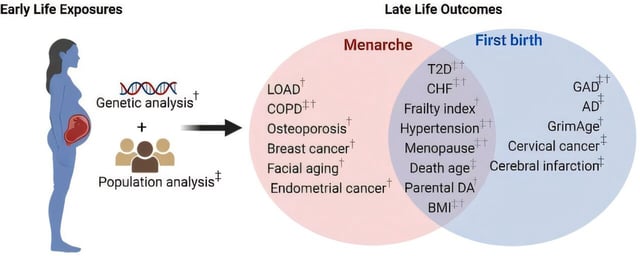Overview
- Girls with menarche before 11 or women with first birth before 21 faced about double the risk of type 2 diabetes, heart failure and obesity, and roughly quadruple the risk of severe metabolic disorders.
- Genetic analyses associated later reproductive timing with longer lifespan, lower frailty, slower epigenetic aging and reduced risks of age-related diseases, including type 2 diabetes and Alzheimer’s.
- The eLife study identified 126 mediating genetic markers tied to key longevity and metabolic pathways such as IGF‑1, growth hormone, AMPK and mTOR signaling.
- Body mass index emerged as a critical mediator, with early reproductive events linked to higher BMI that contributes to elevated metabolic disease risk.
- Authors call for broader use of menstrual and childbirth history in preventive care, note a decades-long shift toward earlier menarche in the U.S., and recommend follow-up studies and refinements to preclinical models that often rely on virgin female mice.

